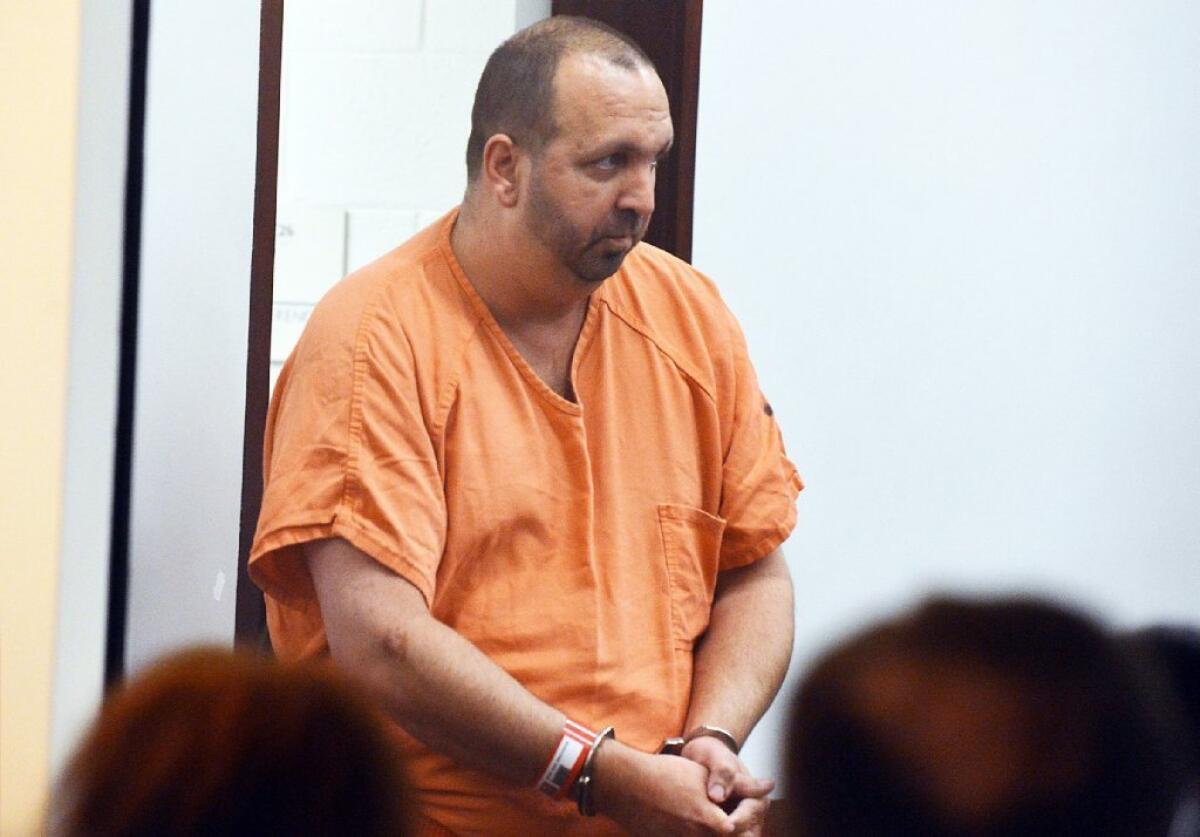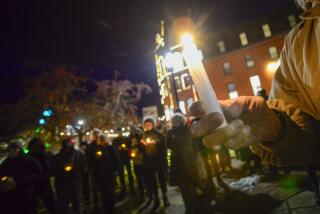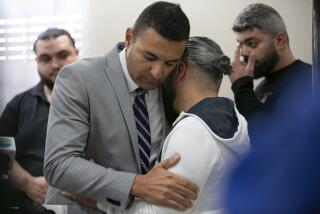Opinion: Not every hateful crime is a hate crime

- Share via
In his Op-Ed piece in the L.A. Times on Wednesday, President Obama referred to the killing last week of three young Muslim Americans in Chapel Hill, N.C. Authorities there say that Deah Shaddy Barakat, his wife, Yusor Abu-Salha, and her sister Razan Abu-Salha were shot by Craig Stephen Hicks, a neighbor of the married couple.
“We do not yet know why three young people, who were Muslim Americans, were brutally killed in Chapel Hill, N.C.,” Obama wrote. “But we know that many Muslim Americans across our country are worried and afraid. Americans of all faiths and backgrounds must continue to stand united with a community in mourning and insist that no one should ever be targeted because of who they are, what they look like, or how they worship.”
Without explicitly saying that the killings were an anti-Muslim hate crime, Obama encouraged speculation along those lines.
Others, including relatives of the victims, have no doubt.
Mohammad Abu-Salha, father of the two sisters, said: “This has hate crime written all over it.” According to a report in this newspaper, few of the 5,000 people who attended funeral rites for the victims seemed convinced that they had been killed as the result of a parking dispute, as police have suggested. The story added that the Muslim community had demanded that the killings be investigated as a possible hate crime.
The FBI says it is investigating whether the killings violated any federal laws, including, presumably, a statute providing criminal penalties for anyone who “willfully causes bodily injury to any person ... because of the actual or perceived race, color, religion, or national origin of any person.”
That investigation should go forward. So far, however, there seems to be scant evidence that Hicks chose his victims because they were Muslims. Reportedly his Facebook page included attacks on religion in general and the statement that “I hate Islam just as much as Christianity, but they have the right to worship in this country just as much as any others do.”
Hicks’ wife said: “It’s my absolute belief that this incident had nothing to do with religion or the victims’ faith, but in fact was related to long-standing parking disputes my husband had with various neighbors regardless of their race, religion or creed.”
Anyone who has covered the police beat knows that gruesome acts of violence can originate in petty disputes. So why is there a general assumption that these killings were not just a hateful crime but a hate crime in the technical sense?
One explanation is the human tendency to commingle case and cause. Here the (worthy) cause is opposition to bias crimes directed at Muslims. It’s natural that those who deplore such crimes would incline to the conclusion that the killings in North Carolina fit the pattern. Even if they don’t, making the connection is a way to raise public consciousness about the larger problem. That may explain Obama’s decision to mention the North Carolina killings as part of his condemnation of religiously motivated violence.
Another factor may be at work. An unintended consequence of the enactment of hate-crime laws is a widespread impression that a murder or other act of violence is somehow less evil if it isn’t classified as a hate crime. Conversely, designating a crime as a hate crime is seen as a statement about the victim’s worth.
One manifestation of that view is the ever-expanding list of categories of hate crimes. In some states, it constitutes a hate crime to choose a victim on the basis not only of race, ethnicity or religion but also of sexual orientation or disability. A bill proposed in the last Congress would have expanded the definition of hate crime in one federal statute to include attacks on the homeless. After the killing of two New York City police officers in December, the Fraternal Order of Police urged Congress to expand the federal hate-crime law to include attacks on police.
The killings in North Carolina were horrible if they were motivated by Islamophobia, but they were also horrible if they originated in equal-opportunity malice. Confirmation of the second scenario would not reflect disrespect for the victims or indifference to the targeting of people because of “how they worship.”
Follow Michael McGough on Twitter @MichaelMcGough3
More to Read
A cure for the common opinion
Get thought-provoking perspectives with our weekly newsletter.
You may occasionally receive promotional content from the Los Angeles Times.







